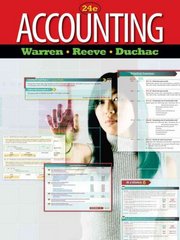Question
19. You are a licensed CPA who is a member of both the AICPA and the Oregon Society of CPAs. You work in the Tax
19. You are a licensed CPA who is a member of both the AICPA and the Oregon Society of CPAs. You work in the Tax Compliance Department of a major publicly traded supermarket chain. The company is considering whether to claim a deduction for food donated to various homeless shelters. According to Internal Revenue Code Section 170(b), in the case of a corporation, the total deductions under subsection (a) for any taxable year shall not exceed 10 percent of the taxpayer's taxable income, computed without regard to certain deductions.
Based on your calculations, your employer has already exceeded this limit and cannot claim any deduction for the donated food if it considers the donation to be a charitable contribution. However, this donation earns the company positive news coverage and publicity. As a result, several of your colleagues believe that a full deduction may be claimed under the Tax Code's provisions that allow ordinary and necessary business expenses, such as marketing and advertising, to be claimed.
Your supervisor has asked you to assume that this deduction will save your company $1 million in taxes if it not disallowed by the IRS. You also have been asked to assume that the chance of this item being challenged by the IRS if the company places it on its tax return is 1 in 10, and the probability of the company successfully persuading the IRS about the correctness of its tax position is about 2 in 10. If challenged and your company fails to persuade the IRS that your claimed deduction is allowable, the penalty will be $10 million, on average. Your client is not willing to call attention to this tax position by making any special tax return disclosures.
A. Are you personally obligated to abide by the AICPA's Statement of Standards for Tax Services, even though you do not work in public practice?
B. Assume that you are not bound by the AICPA Standards. Would it be a rational economic decision for your client to claim these food donations as fully deductible under the Tax Code's ordinary and necessary rules?
C. Assume that you are bound by the AICPA Standards. Can you advise your client to claim these food donations as an ordinary and necessary expense?
D. Could your client claim this deduction if it was willing to make explicit disclosures about this deduction and attach that disclosure to its tax return?
Step by Step Solution
There are 3 Steps involved in it
Step: 1

Get Instant Access to Expert-Tailored Solutions
See step-by-step solutions with expert insights and AI powered tools for academic success
Step: 2

Step: 3

Ace Your Homework with AI
Get the answers you need in no time with our AI-driven, step-by-step assistance
Get Started


